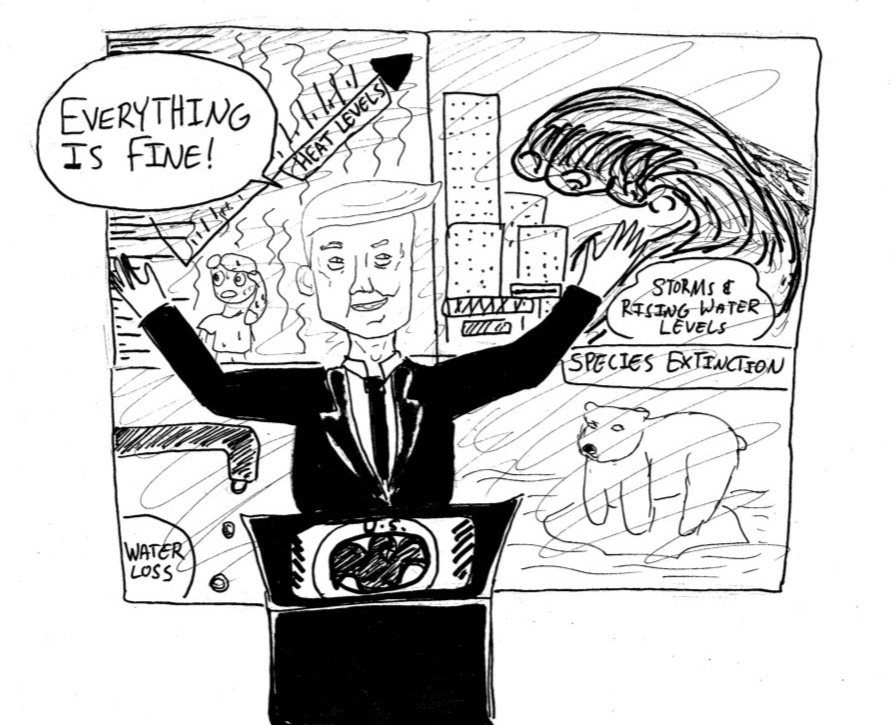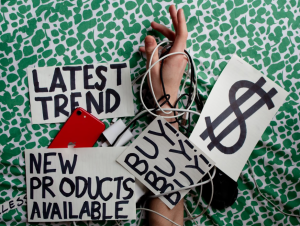CRLS Responds, Speaks Out Against Climate Change
December 21, 2018
Climate change’s effects on the biosphere are greater than ever, and we as a country have not only failed to accept its current consequences, but the consequences it will pose for the future. According to the Yale School of Forestry and Environmental Studies, 51% of U.S. citizens don’t believe in the concept of climate change, in spite of the 97% of scientists who affirm that it is undoubtedly reshaping the configuration of our world. So, what makes people feel so entitled to having this seemingly backward opinion on the topic?
Matthew Hernandez ’20, a student who’s deeply concerned about the effects of climate change, believes he knows why. “Our government’s current policies and the way government as well as corporations approach certain issues we face on an everyday basis can have a true effect on our values and the things we believe to be true,” he said. “I think this is not only applicable to most topics but certainly climate change.”
The issues that shed light on how government as well as corporations negatively influence our opinion on climate change incorporate many events that have happened in recent years. Three of these incidents that particularly stand out are the US Department of Agriculture’s ban of the term climate change in formal discussions, the creation of a law in North Carolina which prohibits the use of estimates on sea level rise during coastal-planning processes, and President Trump’s 30% tariff on those who own solar panels. However, this is only the tip of the iceberg when it comes to government as well as corporations trying to build unassurance and resistance on the effects of climate change.
In 2017, Myron Ebell, an accomplice of President Trump who helps fund climate change resistance groups and advocates for “free enterprises and individual liberty,” sent a letter to the president informing him to promote business and economy through sullying climate change. Likewise, in 2001, Frank Luntz, a political consultant known to also advocate for “free enterprises and individual liberty,” advised President Bush to bring about scientific uncertainty relating to climate change.
Mina Hasan ’20, a member of Environmental Action Club, talked about this issue of the government improperly attempting to control perspectives on climate change by saying, “Actions such as these not only further dilute our opinions of climate change by preventing us from knowing the truth about the matter, but more importantly neglect the problems people around the world are facing due to the effects of climate change.”
To add on to this sentiment, biology teacher Paul McGuinness, who promotes solving environmental issues through credible science, went into further detail about the role climate change will have in the future. “The thought that climate change is only coming is fake news; it’s already here,” Mr. McGuinness exclaimed. “Future generations are going to grow up on a planet that’s critically and fundamentally different from their grandparents’ planet.”
In response to comments such as these, the United Nations recently held a meeting related to the issues that climate change is causing. This meeting shocked many climate change skeptics by explaining how if not acted upon within the next twelve years, Earth would face irreversible changes and a climate catastrophe.
Examples of these irreversible and devastating changes include rising sea levels, extreme weather events, desertification, extinction of species, and places being simply too hot to inhabit any longer.
One spot that will be increasingly affected by these things is Algeria, a country which is experiencing less rainfall in concentrated spurts on top of elongated droughts. Black Student Union member Reham Zeroual ’20 spoke on behalf of her native country and summarized her ideas on the way our government is handling climate change. “The idea that my country will cease to be a place that I can travel to and my family can live angers me.”
This piece also appears in our December 2018 print edition.











